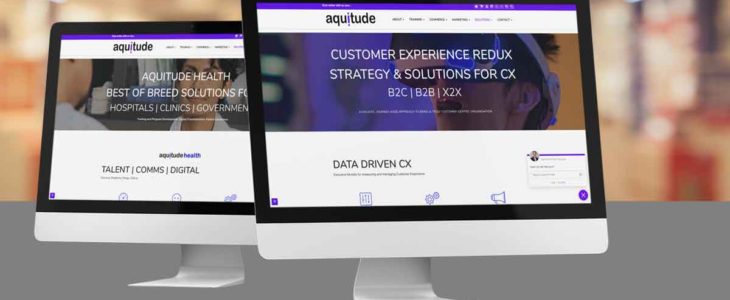
Content Management Systems haven’t changed much in the last 10 years. Unlike Ecommerce platforms, which have taken advantage of investment, innovation and changes in user behavior, there is a very limited choice when it comes to picking the right CMS.
It’s even harder to make a decision for mid-sized companies. Enterprise solutions, rebranded as ‘Digital Experience Platforms’ have all the bells and whistles with a big price tag. For SMEs and small businesses there is the ubiquitous WordPress and some cookie-cutter sites like Wix, but what about in between?
There doesn’t seem to be an obvious mid-market, SaaS CMS that does everything the way Shopify does for Ecommerce. We are huge fans of WordPress. There is almost nothing that it can’t do via hundreds of thousands of pre-built integrations and plugins, but what if you want more – like personalisation?
Medium-Sized Company CMS Requirements.
Personalisation
There is a reason why SalesForce and Adobe acquired ecommerce platforms. Ecommerce is where the data is. If somebody makes a purchase on your website, then you can target and retarget them using algorithms. So what if your product is information or content?
The top-end CMS solutions, also known as Digital Experience Platforms allow users to be tracked, grouped and targeted, the same way as an ecommerce system might do it. There are some emerging plugins for WordPress – like If-So that can provide some functionality, including Geo-location targeting and Hyperise uses B2B databases to provide personalisation.
For the Medium sized company Kentico is one option. Liferay is another. Both feature ‘Personas’ and groups as part of the admin that allows for different content to be shown to different users according to rules.
Ease of Use
Why are WordPress and Shopify so successful? They democratised the ability to have a professional, fully featured website without having to have an IT department.
Unfortunately, most mid-market CMS systems have not been able to shake the old-school IT mentality. Agencies that develop themes and functionality charge Enterprise rates and quote hundreds of hours for tasks that should be ‘off the shelf’ in 2020.
Content creators and editors are used to simple publishing tools that automatically present ways to follow best practice for SEO and shouldn’t need to know how to ‘code’ to make changes to a website. Don’t forget your users!
Then there is the Devops – the management and maintenance of IT infrastructure. Again – most options for medium-sized businesses require the client to source and configure hosting. Some have a Platform as a Service (PaaS) option, but SaaS is not something that is easy to find.
For a mid-market company that operates in the professional services or healthcare space, having to manage the dev-ops of a website is something that shouldn’t have to be an issue.
Lifetime Cost
Open Source does not mean free. Some Open Source products may have a license fee. Software pricing is a complicated thing and it really does pay to read the fine-print.
If you are choosing a system integrator or agency to build your website, then make sure to compare ‘apples with apples’. Make sure you know:
- Is there a licence fee for the software? How is it calculated – per server, per user? Is it perpetual or yearly? Do staging servers count?
- Is the functionality you require included in the license band you are looking at? What are the fees for plugins and extensions? Are they charged monthly or one off?
- What are the costs associated with developing new functionality or making changes?
- Is hosting and other infrastructure e.g. Content Delivery Network (CDN) included?
In the Mid-Market CMS space, licensing ranges from ‘Free’ to USD$10,000 per year to $15,000 per server per year… and it goes up from there.
What is the Best Content Management System for a Mid-Market company?
It depends. On your requirements, your business, your regulatory environment, your budget, your content, your users and your level of expertise. Maybe you want to go ‘Headless’!
At Aquitude, we have just completed a comprehensive review of CMS options for a medium sized business in the Healthcare space. CMS systems compared included Umbraco, Kentico, Liferay, PIMCore and… WordPress.
Based on a weighted scorecard, we impartially and independently reviewed each solution against the specific business requirements and made a recommendation.
Maybe the recommendation would be the same for your business. Maybe you have different requirements and something else would be better suited. Why not talk to our CMTO group to find out?